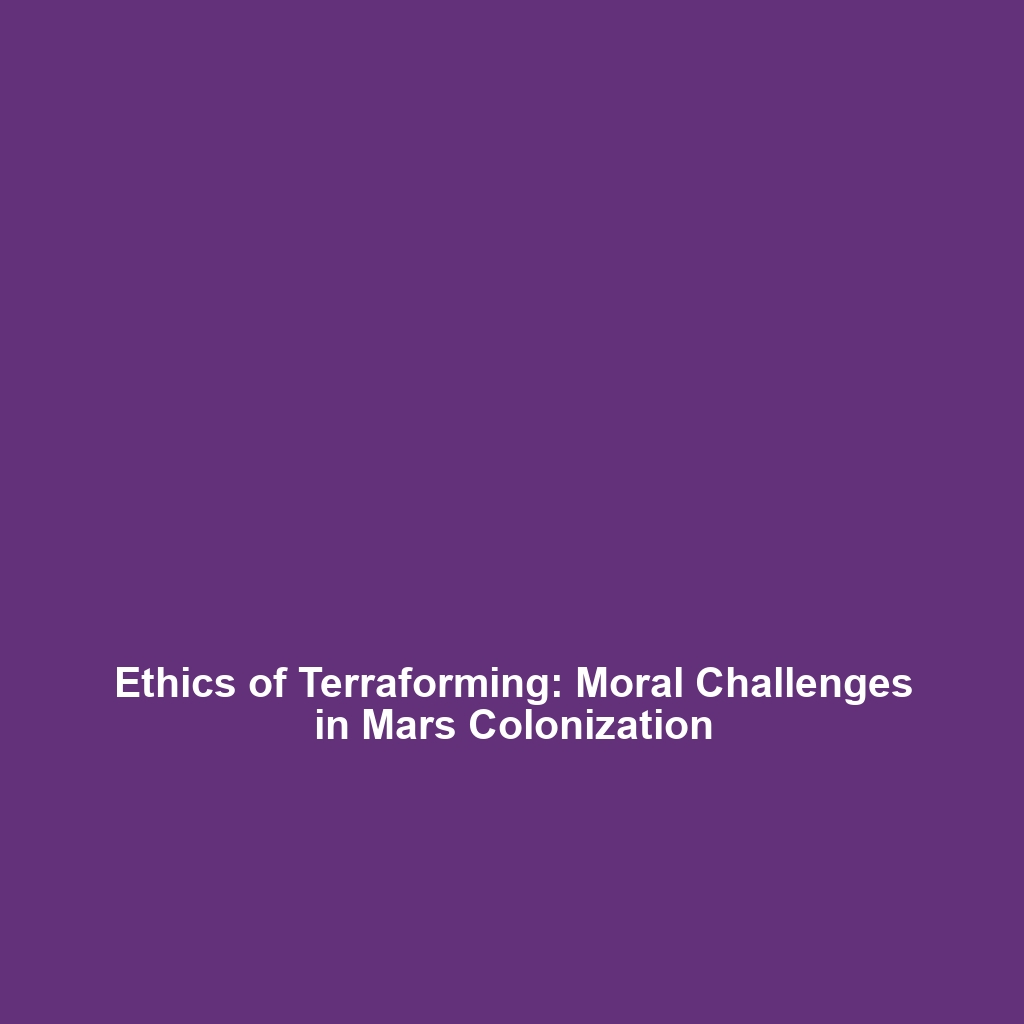Ethics of Terraforming: Moral Implications of Altering Another Planet’s Ecosystem
Introduction
The ethics of terraforming Mars raises profound moral questions about humanity’s responsibility in altering another planet’s ecosystem. As we look towards colonizing Mars, understanding the implications of transforming its environment becomes essential. This discussion touches on philosophical, environmental, and potentially societal impacts that could arise from such actions. The significance of this topic is not only rooted in pragmatism but also in the moral fabric that binds our interplanetary aspirations.
Key Concepts
Understanding Terraforming
Terraforming refers to the deliberate modification of a planet’s atmosphere, temperature, or surface to make it habitable for Earth life. While the technological methods to achieve this are under exploration, ethical principles must guide these initiatives. Key concepts include:
- Environmental Ethics: The philosophy concerning our responsibilities towards other forms of life and ecosystems.
- Interplanetary Colonialism: The moral implications of establishing a human presence in extraterrestrial territories.
- Planetary Protection: The need to safeguard existing ecosystems, even if they are alien, from contamination by Earth life.
Applications and Real-World Uses
The potential applications of the ethics of terraforming in the context of colonizing Mars are profound. For example:
- How ethical frameworks are used in terraform planning: Ethical considerations influence mission designs, ensuring they are responsible and sustainable.
- Applications of environmental ethics: These guide the assessment of potential risks and impacts on Martian ecosystems and speculate on their preservation.
Current Challenges
Challenges of Terraformed Ecosystems
While the prospect of terraforming Mars is exciting, there are several challenges to consider, including:
- Navigating the ethical debate around altering pristine environments.
- Determining the potential consequences of introducing Earth microbes to Mars.
- Addressing the legal implications of ownership and stewardship over Martian lands.
Future Research and Innovations
Ongoing research into the ethics of terraforming is critical as we prepare for potential future colonization of Mars. Breakthroughs may include:
- Advances in biotechnology that enable controlled environmental changes.
- New methodologies for ecological monitoring of terraformed areas.
- Innovations in sustainability practices that mitigate adverse impacts on Martian ecosystems.
Conclusion
The ethics of terraforming is an essential discussion for those interested in colonizing Mars. As humanity prepares to leave Earth, it must grapple with the moral implications of its actions on other planets. Future research and a robust ethical framework will be vital in ensuring that humanity’s expansion into space is conducted responsibly. For further reading, refer to our articles on planetary protection and environmental responsibility in space exploration.

Leave a Reply